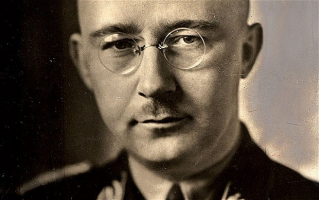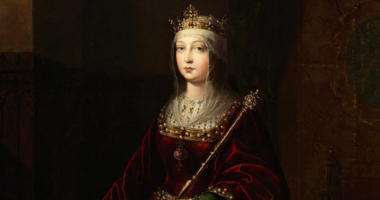Top 5 Interesting Facts about Phillis Wheatley
Not only was Phillis Wheatley the first published African American woman, but was also one of the first published American women poets. She was lucky to find ... read more...an owner who valued her skills and ultimately freed her after being sold into slavery after being born in Africa. George Washington requested her to see him, since she was well-known even in her own lifetime. In this article, Toplist will show you some interesting facts about Phillis Wheatley that you could have never heard before.
-
Scholars assume that Phillis Wheatley was born in 1753 in West Africa, most likely in modern-day Gambia or Senegal, despite the fact that the exact year and location of her birth remain unknown. On July 11, 1761, when she was seven years old, she was purchased by a traveling trader from a native chief and transported on the slave ship The Phillis to Boston in the British Colony of Massachusetts. Peter Gwinn served as the ship's captain, while Timothy Fitch owned it.
When she arrived in Boston, she was purchased as a slave for his wife Susanna, who was a rich Boston businessman and tailor John Wheatley. She was given the name Phillis by John and Susanna Wheatley in honor of the ship that had brought her to America. She was given their last name, Wheatley, as was customary when an enslaved person's last name was used.
Mary, the 18-year-old daughter of the Wheatleys, served as Phillis's first reading and writing tutor. Nathaniel, their son, also gave her assistance. One of the interesting facts about Phillis Wheatley is she received an education that was both exceptional for a lady of any race and unheard-of for an enslaved person thanks to John Wheatley, a progressive figure well-known throughout New England.
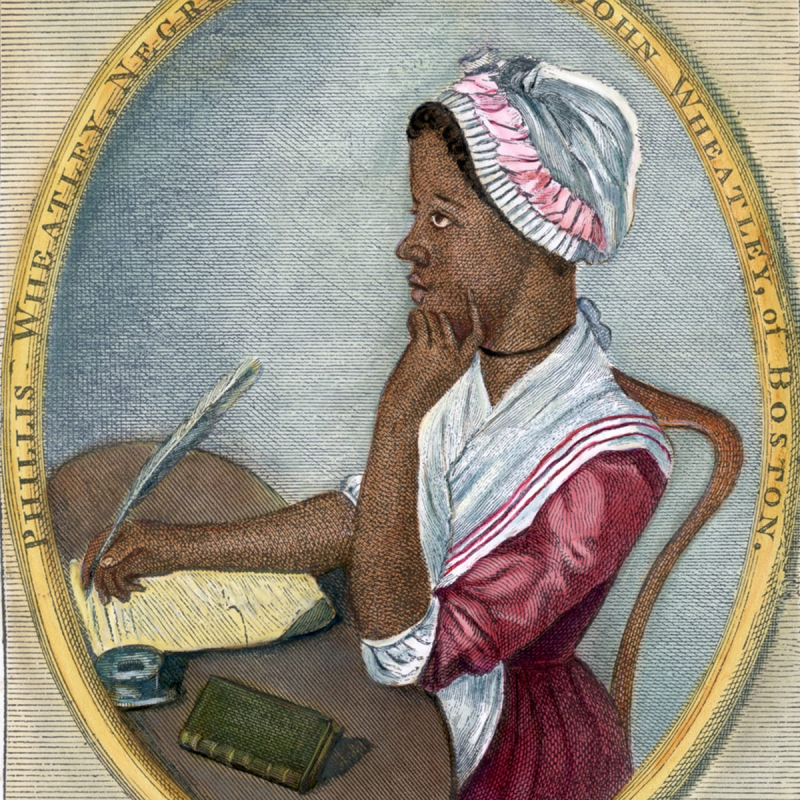
Photo: portrait of Phillis Wheatley - biography 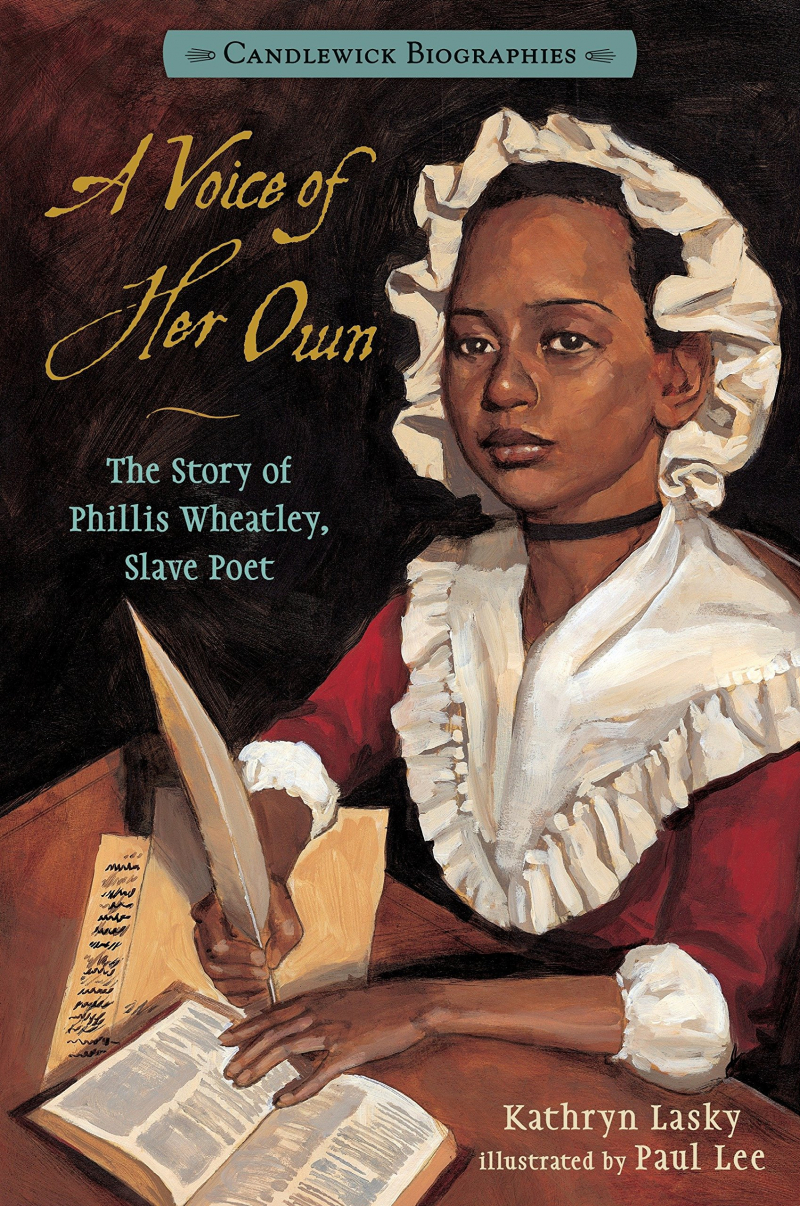
Photo: Book about Phillis Wheatley - amazon -
Phillis received an education from the Wheatley family, which was both exceptional for a woman of any race and unheard of for an enslaved person. She began reading challenging Bible verses and Greek and Latin classics in their native languages by the age of 12. Her first poem, “To the University of Cambridge [Harvard], in New England”, which she penned at the age of 13, expressed her desire for the intellectual challenge of a more academic environment despite the rich and uncommon exposure she had received as an American slave.
The Wheatley family funded Phillis's schooling since they were aware of her literary talent and delegated home duties to their other domestic slaves. Her skills were frequently displayed by the Wheatleys to friends and relatives. Phillis started writing poetry after reading the works of Alexander Pope, John Milton, Homer, Horace, and Virgil.
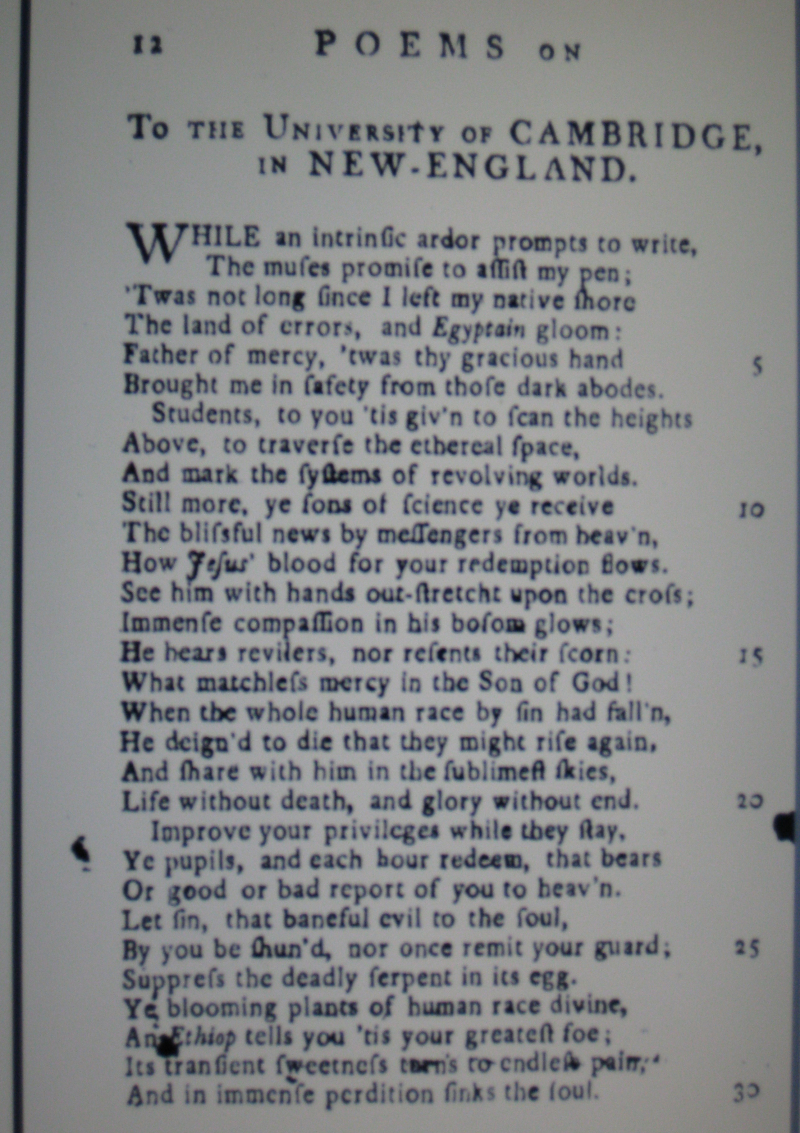
Photo: To the University of Cambridge - eng167ablogproj.wordpress 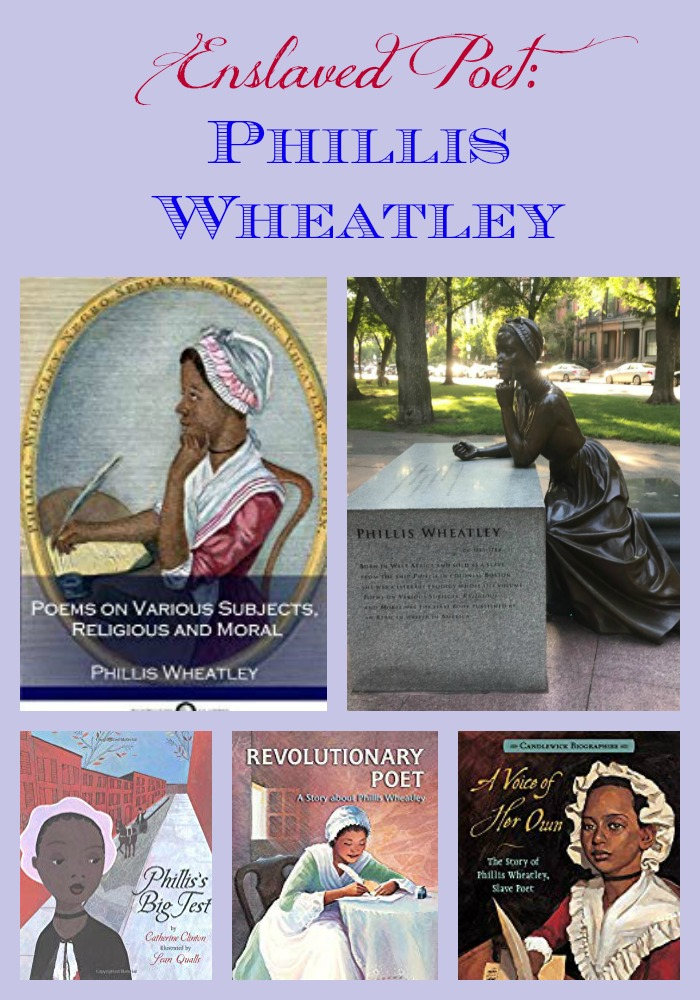
Photo: Enslaved Poet: Phillis Wheatley - pragmaticmom -
It was hard for many colonists to accept that an African slave was producing “great” poetry. In 1772, something seemingly absurd happened, and Wheatley had to prove to the court the authorship of her poetry in court. John Erving, Reverend Charles Chauncey, John Hancock, Thomas Hutchinson, the governor of Massachusetts, and Andrew Oliver, his vice governor, were among the Boston elite who examined her. After careful consideration and evaluation, they came to the conclusion that she had actually written the poems that had been claimed to her, and she signed an attestation that was included in the preface of her collection of poems.
The poems she wrote have different themes like Religious and Moral, which was published in London in 1773. Publishers in Boston had turned it down, but powerful people in London were very interested in her work.
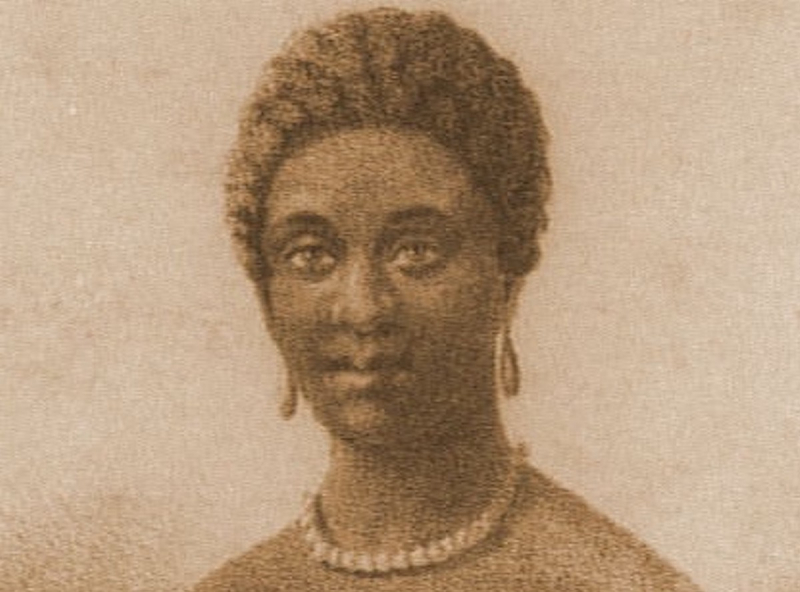
Photo: portrait of Phillis Wheatley - owlcation 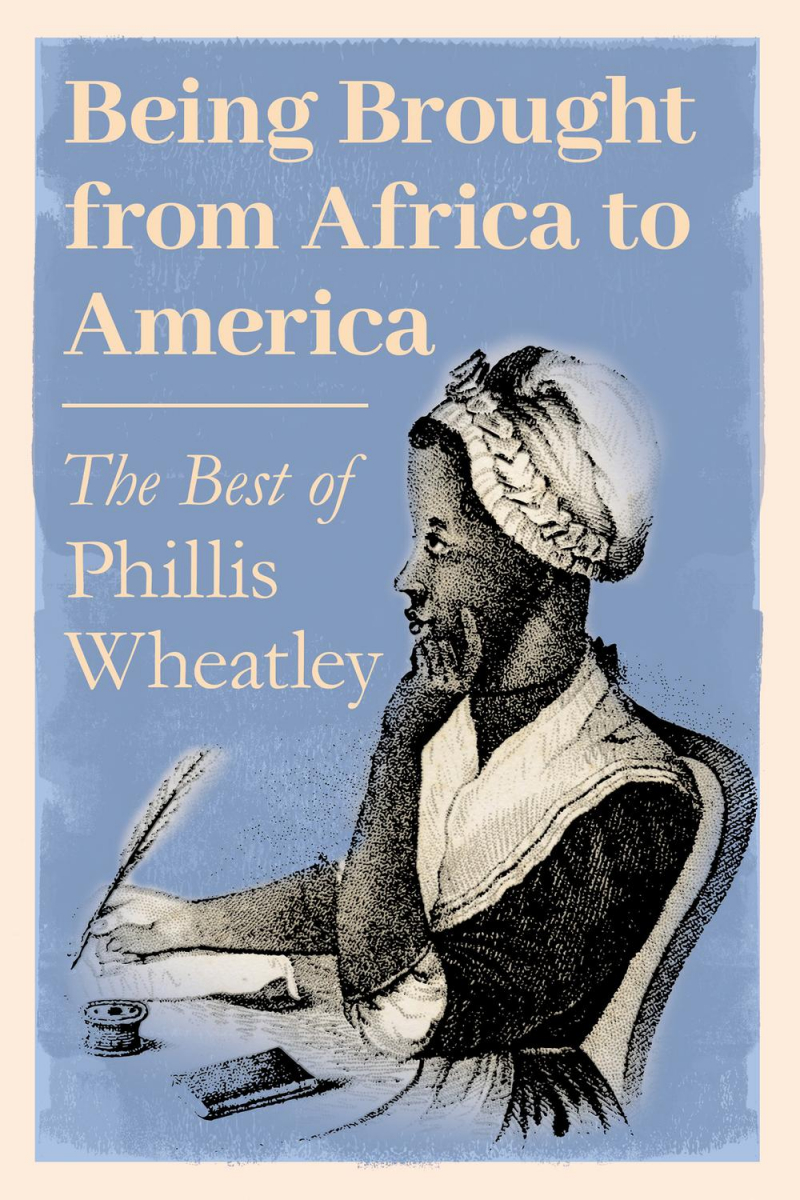
Photo: Phillis Wheatley's poems - perlego -
Wheatley, then 18 years old, had amassed a collection of 28 poems by the time she published advertisements for subscribers in Boston newspapers in February 1772 with Mrs. Wheatley's assistance. No American publisher was willing to publish her work when the colonists seemed unwilling to sponsor literature by an African.
She and the Wheatley were frustrated and decided to look for a publisher in London. Given that England is more welcoming to black authors, Susanna Wheatley thought it was more probable that Phillis' collection would be published there. Selina Hastings, Countess of Huntingdon, to whom Whitefield had served as chaplain, had received the Whitefield poem from Wheatley. The countess, a wealthy supporter of evangelical and abolitionist movements, gave bookseller Archibald Bell the order to contact Wheatley in order to prepare the book. Wheatley's collection of poetry was published in London in September 1773 with assistance from Selina Hastings, Countess of Huntingdon.
Her poem “Hymn to the Morning” was published as a “specimen” of her work in The London Magazine in 1773. The reviewer commented on her poetry, saying: “These poems display no astonishing works of genius, but when we consider them as the productions of a young, untrained African, who wrote them after six months of careful study of the English language, we cannot but suppress our admiration for talents so vigorous and lively.” Up till 1816, 11 editions of Poems on Various Subjects, Religious and Moral were published. Phillis Wheatley was the first African American and second woman (after Anne Bradstreet) to publish a book of poems, despite having spent the majority of her life in slavery.
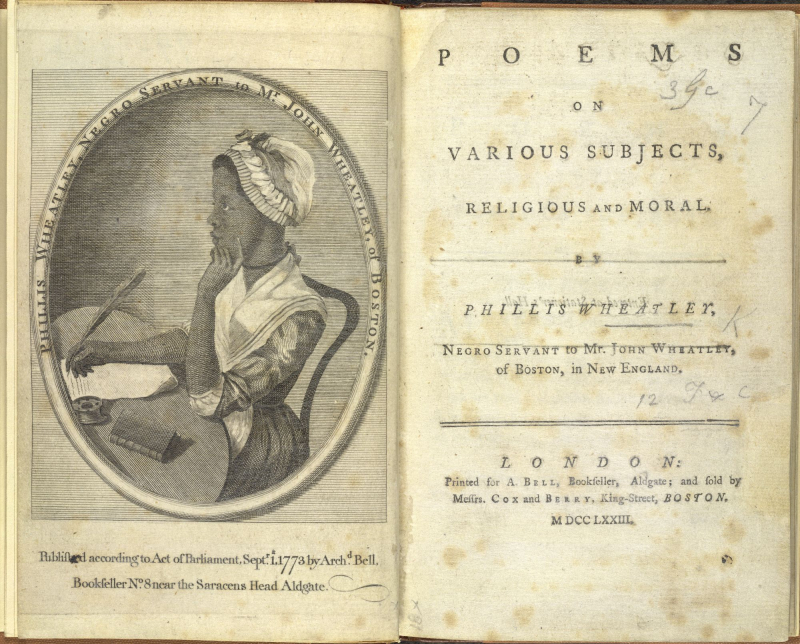
Photo: Phillis Wheatley’s Poems - bl.uk 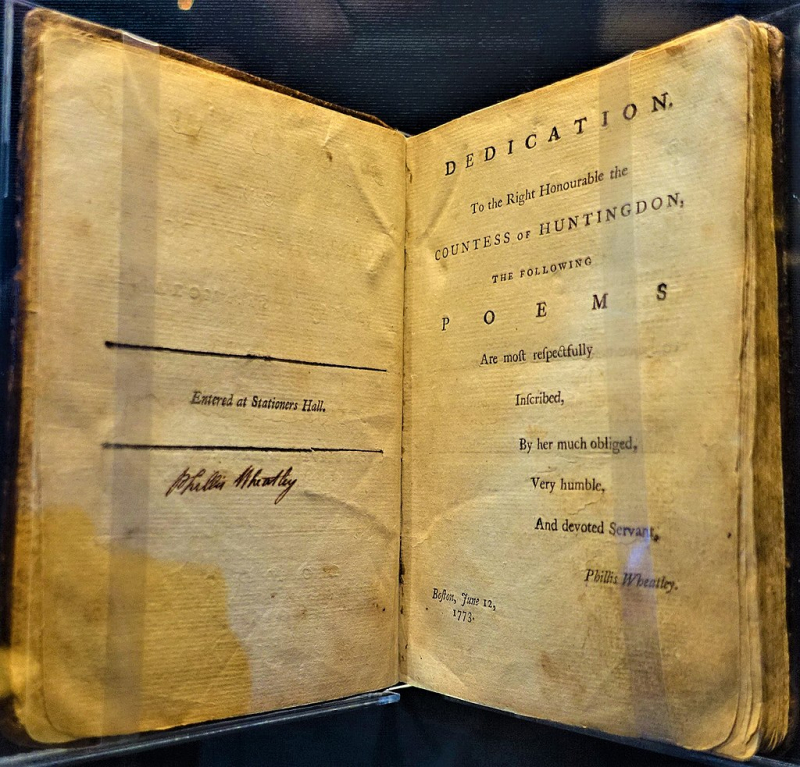
Photo: first collection of poems by Phillis Wheatley published - joyofmuseums -
George Washington and the cause he was championing, which faced such formidable obstacles, impressed Phillis Wheatley. She wrote a letter addressed to the generalissimo of the North American forces, “To His Excellency General Washington,” in late 1775, as the Continental Army was engaged in combat with the Redcoats in Boston. The couplet that concluded the letter imagined a patriot George III succeeding the oppressive George III in the Americas, one who was crowned without regard to divine right or inherited privilege, but by proven merit:
“Thy ev’ry action let the goddess guide / A crown, a mansion, and a throne that shine / With gold unfading, WASHINGTON! Be thine.”
Wheatley wrote the poem in the hopes that Washington would treat enslaved people with the equality and freedom espoused by the American Revolution.
Deeply moved by the tribute, Washington later replied to Wheatley from his Cambridge headquarters. One of the interesting facts about Whiles Wheatley is it is the only letter that is known to have been written by Washington to a slave, and it was written while he was living in a home that would later be occupied by another poet, Henry Wadsworth Longfellow. The general sent a letter with an invitation to visit him at his headquarters and stated, “However undeserving I may be of such encomium and panegyric, the language and method give a stunning proof of your poetical talents.” When Colonel Joseph Reed, a friend of Washington's, received the poem, he had it published in the newspapers. Even while his pamphlet Common Sense was igniting the independence movement in 1776, Thomas Paine would get Wheatley's work published by the Pennsylvania Gazette. During the time when the British departed Boston, it is thought that Washington and Wheatley met, either in Cambridge or subsequently in Providence. It is unknown what topics Wheatley and Washington discussed, but it is reasonable to believe that his encounter with the young woman aided in his development and helped him to better grasp and advance the idea of liberty.
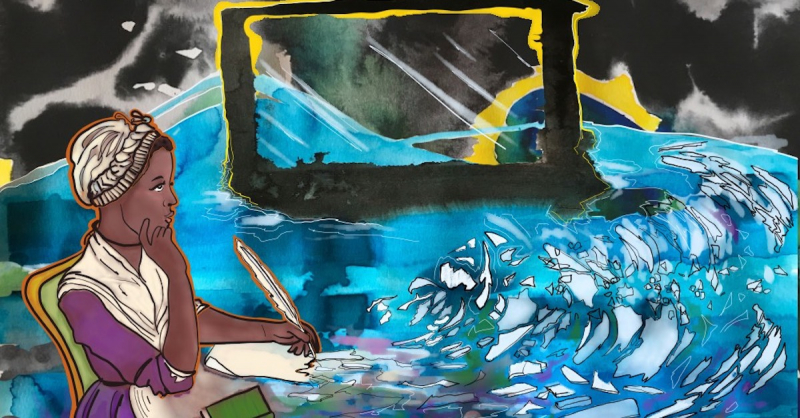
Photo: portrait of Phillis Wheatley - zocalopublicsquare 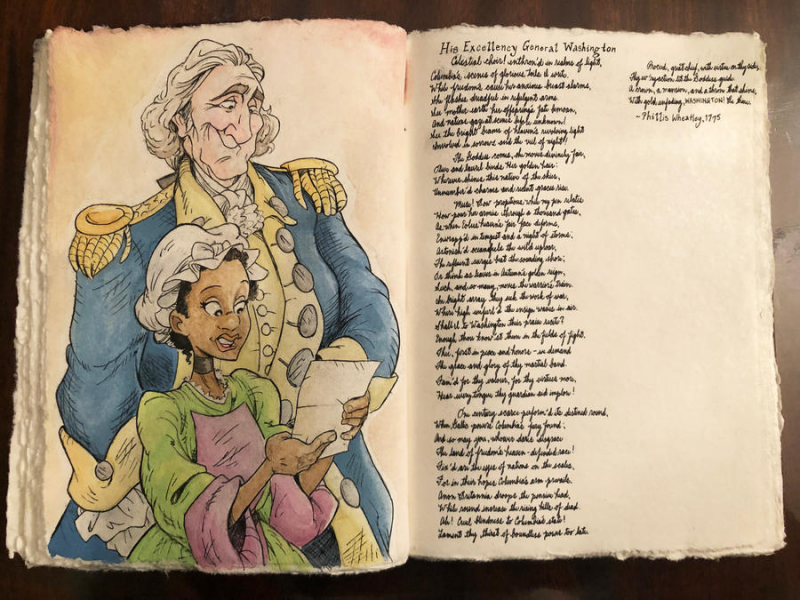
Photo: Phillis Wheatley and George Washington by Snipetracker - deviantart























